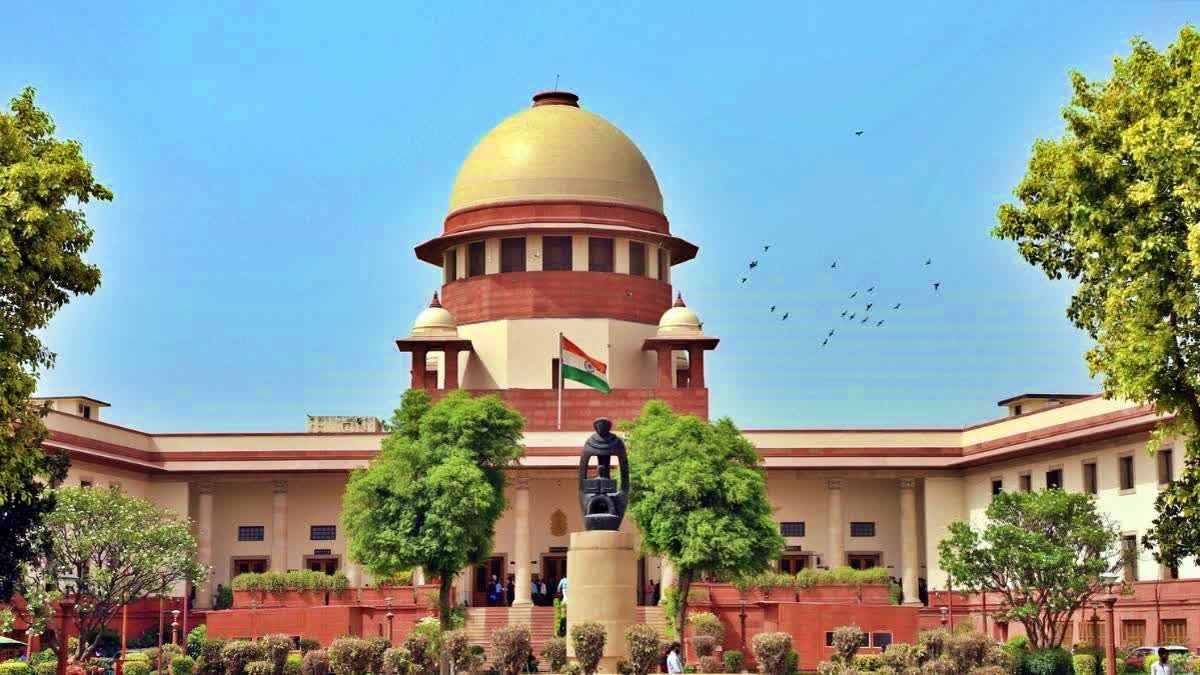New Delhi: The Supreme Court Tuesday said that Article 5 of the Jammu and Kashmir constitution shows that the Indian Constitution would apply to J&K and queried a counsel, the net consequence would be that the Constitution of India in its application to J&K would stand frozen as of 1957 and no further development in Indian constitutional law can apply to J&K, how can that be accepted?
A constitution bench headed by Chief Justice of India D Y Chandrachud and comprising justices S K Kaul, Sanjiv Khanna, B R Gavai, and Surya Kant, is hearing a batch of pleas challenging the abrogation of Article 370, which bestowed special status on the erstwhile state of Jammu and Kashmir.
Senior advocate Dinesh Dwivedi, representing petitioner Prem Shankar Jha, opened the arguments today before the five-judge bench. Dwivedi said sovereignty comprises two parts -- merely because you have ceded external sovereignty, it doesn't amount to ceding of internal sovereignty. He said Article 370 ceases to operate once the constitution of J&K was enacted in 1957.
Dwivedi said Kashmir was different both in terms of accession to the dominion of India where it ceded at a different time as an independent state or a nation and it was different in the sense that it didn't merge with India, unlike the other states. The Chief Justice queried Dwivedi that which is the provision in the J&K constitution which is equivalent to Article 245 of the Indian Constitution. Dwivedi contended that Articles 3, 4 and 5 of the J&K Constitution.
Justice Chandrachud said that Article 5 of the J&K constitution says the executive and legislative power of the State extends to all matters except those with respect to which Parliament has the power to make laws for the State under the provisions of the Constitution of India. He said it postulates that the Indian Constitution does apply to J&K.
The Chief Justice told Dwivedi that unless we accept that “Article 370 continued till 2019, there would be no trammel on the jurisdiction of Parliament (as per Article 5)…”.
Citing Article 5 of J&K, the Chief Justice said that for Article 370, Parliament would have the power to make laws with respect to all aspects in List 1 List 3, “If Article 370 goes, where is the limit of power of Parliament?” The top court orally observed that there are no provisions in the Indian Constitution, that bars its applicability to Jammu and Kashmir.
